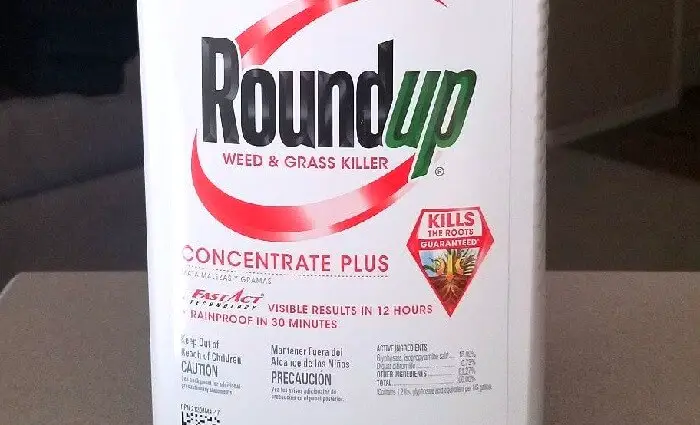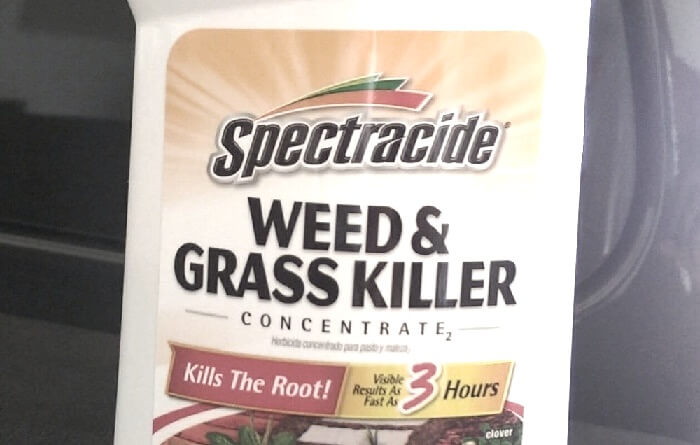Roundup Vs Spectracide Weed Killer

In the battle of weed control supremacy, two leading contenders, Roundup and Spectracide, consistently take the spotlight. These potent herbicides, each equipped with distinct active ingredients and modes of operation, offer impressive abilities to combat unruly plants.
This comparative analysis will delve into their functionalities, broad-spectrum efficacy, speed of action, and several other critical factors, providing insights to guide your choice in this Roundup vs. Spectracide showdown.
Spectracide Vs Roundup Table
You can quickly grasp the differences between the options presented by referring to this comparison table.
Spectracide | Roundup |
 |  |
Contains mix of diquat dibromide, dicamba and dimethylamine salt, and fluazifop-p-butyl | Active ingredient of Roundup is herbicide glyphosate. |
Efficiently kills weed and grass in the areas where it touches them directly. | It kills the toughest weeds and grasses down to the root |
Shows Results Within 3 Hours | Visible results can be expected in 12 hours due to FastAct Technology. |
It rainproof upto 15 minutes after application. | It rainproof upto 30 minutes after application. |
It will kill any vegetation it comes in contact with, so it should be used carefully to avoid damage to desired plants. | Not recommended for use around existing edible plants. |
Mix of 7 fl oz per gallon of water covers up to 300 sq ft | 6 fl. oz. of concentrate should be mixed with one gallon of water |
Results Or Your Money Back Guarantee | Results Or Your Money Back Guarantee |
Spectracide available in 16 fl oz, 32 fl oz, 64 fl oz, and 1-gallon sizes | Roundup comes in 32 oz, 0.5 gallon, 36.8 oz, and 16 oz sizes. |
Active Ingredients
Spectracide’s potent formula contains an active mix of diquat dibromide, dicamba and dimethylamine salt, and fluazifop-p-butyl. In contrast, Roundup solely employs the concentrated herbicide glyphosate.
The differentiation in these active ingredients inevitably affects their modes of operation, influencing how and what types of weeds they target.
Mode of Action
Spectracide operates as a contact herbicide, effectively exterminating plants in the areas with which it comes into direct contact. However, it doesn’t typically target roots unless it penetrates beneath the soil surface.
Conversely, Roundup acts as a systemic herbicide, navigating its way throughout the plant’s entire structure, including roots, stems, and leaves, enabling it to destroy plant parts that may not even have been directly exposed.
Broad-Spectrum
Both products exhibit impressive capabilities against various plants, but their efficiency does show variations. Spectracide excels in combating weedy grasses such as clover, dandelions, ivy, and most grasses.
Roundup, however, excels against broad-leaved plants, pokeweed, pampas grass, dallisgrass, and other weedy grasses, providing a slightly broader range of weed control.

Speed of Action
A highlight in the herbicide market, Spectracide typically showcases results faster than Roundup, with visible effects appearing within three hours to three weeks, depending on the toughness of the weed.
Roundup, though slower, starts wilting weeds in 2-4 days and entirely eliminates them within 1-2 weeks.
Persistence
Spectracide tends to persist longer in soil, with a half-life of about 32 days, potentially making it more effective at preventing the resurgence of weeds.
Application
Both herbicides categorize as non-selective and post-emergent, signifying their ability to kill most plants they come into contact with and to work effectively on weeds that have already emerged.
Effectiveness
Spectracide exhibits quick rainproof qualities, becoming resistant to rain within 15 minutes. On the other hand, Roundup becomes rainproof in 30 minutes but may require up to 12 hours to show visible results.

Where to Use
Roundup can be used in a multitude of locations, from flower beds to walkways and driveways. Similarly, Spectracide can be applied on driveways, walkways, and around various green areas in your yard, showcasing their versatility.
Consumer Confidence
Both Roundup and Spectracide come with money-back guarantees, offering a level of assurance and trust in their products. They ensure consumers are covered should they not be satisfied with the products’ performances.
Available Sizes
Spectracide and Roundup offer various sizes, providing options to match different needs. Spectracide is available in 16 fl oz, 32 fl oz, 64 fl oz, and 1-gallon options, while Roundup comes in 32 oz, 0.5 gallon, 36.8 oz, and 16 oz sizes.
Mixing Ratio
To ensure the best results, Roundup recommends a dilution of 6 fl. oz. per gallon of water, while Spectracide advises a seven fl oz to gallon ratio.

Both products should be applied during warm, sunny weather (above 60° F) and when weeds are actively growing. After the application, people and pets may reenter treated areas once the spray has dried.
Our Observation
Both Spectracide and Roundup exhibit commendable weed control capabilities with their distinct active ingredients and modes of operation. However, considering the efficiency, speed of action, and weed control spectrum, Roundup slightly outperforms Spectracide.
Roundup’s systemic action allows it to eliminate weeds, penetrating roots, stems, and leaves, which gives it an edge over Spectracide’s contact-based extermination. Its broad-spectrum efficacy, capable of handling a more extensive range of weedy grasses and broad-leaved plants, further enhances its supremacy.
While Spectracide shows results faster and persists longer in soil, Roundup’s slower but thorough action ensures comprehensive weed destruction over time. Its effectiveness against resilient weeds and its ability to work well in various locations, from driveways to flower beds, demonstrates a versatility that makes it a potent ally in gardening and lawn care.
While both products are valuable depending on the specific needs and circumstances, our observation leans towards Roundup for its comprehensive weed control and overall versatility.
Related Article

James E. Butkovich, Pest control maven with a knack for eco-friendly & Chemical solutions. Blogger with a mission to make homes pest-free, one post at a time.